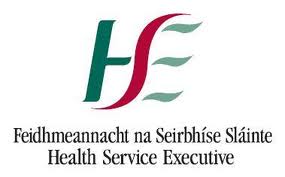 The Health Service Executive today published the latest Irish results from COSI, the European Childhood Obesity Surveillance Initiative. COSI monitors childhood obesity levels by measuring children in sample schools all over Europe.
The Health Service Executive today published the latest Irish results from COSI, the European Childhood Obesity Surveillance Initiative. COSI monitors childhood obesity levels by measuring children in sample schools all over Europe.
This 2012 data is the third set of results to be published to date, and involved a nationally representative sample of 7, 9 and 11 year old children from a mix of Irish urban, rural and disadvantaged (DEIS) schools.
Dr. Stephanie O’Keeffe, National Director of Health and Wellbeing, HSE, said that: ‘The 2012 COSI results show that more than 20% of our children remain overweight or obese, but that rates have either decreased or stabilised in some age groups. This is welcome news, but the overall concern about the level of overweight among our children remains.’
The study was carried out for the HSE by the National Nutrition Surveillance Centre, UCD. The large study comprises 12,236 children’s measurements in 163 schools collected on three occasions in 2008, 2010 and again in 2012.
Prof. Cecily Kelleher from UCD said today: ‘The rates of overweight and obesity have shown decreases at age 7, and stabilisation at age 9, while the overall incidence remains of concern. Those with responsibility for caring for children and educating the public on health and wellbeing therefore have much to do to continue to tackle this issue.’
‘Critically, the observed reduction or leveling off is not happening in DEIS or disadvantaged schools, and this has implications for all, including health and public service partners, particularly those working on implementation of the Healthy Ireland framework. We must ensure that our efforts are focused on bringing the improvements demonstrated by this data to bear on all our children, particularly children who are disadvantaged by poverty, and education, housing and transport deficits, among others.’
Dr. O’Keeffe continued; ‘‘Healthy Ireland, the Government Framework for Improved Health and Wellbeing seeks to proactively improve the health and wellbeing of the population and we know that tackling childhood obesity requires the whole of government and whole of society response that this framework can deliver.
‘Evidence also tells us that overweight and obesity in childhood tracks into adulthood, and that the earlier we intervene to prevent our children from becoming an unhealthy weight, the better their childhood and adult health, and quality and length of life, will be. By identifying at an early stage children whose weight is out of line with their growth for their age, we can offer them and their parents the supports they need to get the balance right as they grow up.’
Dr. Cate Hartigan, Head of Health Promotion and Improvement, HSE, outlined a new growth monitoring project being introduced in September of this year: ‘Later in 2014, the health services will introduce a pilot growth monitoring programme in primary schools, as part of the school health check for 5-6 year olds. This will commence in 4 pilot HSE areas – Mayo, Laois-Offaly, Dublin 15 and Cork City.
‘Parents will be given feedback on their child’s growth, and if required, advice on steps they can take at home to ensure they rebalance diet and activity levels as their child grows. Any children whose growth results show signs of clinical obesity will be offered a community based lifestyle intervention programme, based on the successful W82GO programme delivered by the Children’s University Hospital, Temple Street. ‘
Tags:







